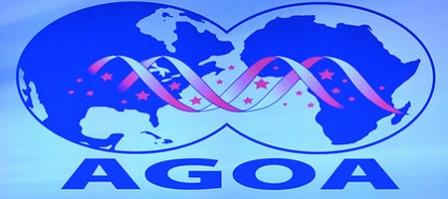Africa’s New Era Marked by Gains in Peace, Democracy

It’s a theory that applies to print and television news–when powerful headline news, embodied in sudden peace agreements, rebel surrenders, mayhem, and conflict, easily leads to wins in the ratings battle.
For Africa, a continent often portrayed in negative terms, with headlines bordering on poverty, war, and disease, progress in the democratic and development processes, doesn’t help with ridding the continent of thoughts about underdevelopment.
Africans Helping Themselves
Reporting news out of Africa is not always “fair and balanced” but at the very least, it is refreshing that the recent stream of “new news out of Africa” is gaining traction among top news publications worldwide.
Call it a reversal of Africa’s news osmosis, this trend appears to be sucking out and albeit eating away at the barrage of bad news that usually comes from places like Darfur, Zimbabwe, and Somalia.
In a July 2007 Washington Post article captioned Stop Trying to “Save” Africa, Nigerian writer, Uzidinma Iweala, argues that the time had come for the Western media to stop portraying Africa in negative terms with stereotypical messages shrouded. These messages, the writer says, are based on talk about humanitarian aid for “unfortunate situations” on the continent. Instead, they should focus on “the incredible work that Africans have done and continue to do to fix those problems.”
So, the news headlines about transformation in Africa have been on.
“Africa, whatever you thought, think again,” “What you need to know about Africa and why it matters,” “What’s next for Africa as the old order tumbles,” “There is hope for Africa,” “Tanzania, the economy goes marching on,” “Hope and Profit in Africa.”
Ok.
These headlines came from a wide array of publications such as Forbes, The Economist, Vanity Fair, National Geographic, The New African, and The African Report, between 2005 and 2007.
Elections and the Rule of Law
How and where in Africa is change occurring? It is in places least expected less than a decade ago; from Nigeria, Liberia, Mauritania, and Sierra Leone to the Ivory Coast. For these nations, many of whom have met the IMF and World Bank conditions under the heavily indebted poor countries (HIPC) program, the tide is for increased financing to help to stimulate investment and economic development.
In March 2007, Mauritania held its first democratic presidential elections since 1960 and which led to the election of president Sidi Ould Cheikh Abdalahi. In August 2005, Mauritania had put itself at odds with the international community after a military coup deposed President Maaouya Ould Sid’Ahmed Taya.
Also in March 2007, Ivory Coast made huge progress towards peace after the rebel faction that helped split the country for five years, agreed to a power-sharing deal with the government. It is a tenuous agreement that holds some hope for lasting peace in a country once hailed as a model for stability.
AGOA, the World Bank, and Economic Growth
To help Mauritania move forward with trade and development, the country was welcomed, alongside Liberia, as a member of the Africa Growth and Opportunity Act (AGOA). The AGOA agreement, put in place by an act of the U.S. Congress in May 2000, extends special U.S. trade benefits to African businesses who otherwise lack the resources to reach the U.S. market and are often left out by unscrupulous trade practices of other nations.
The April 2007 presidential elections in Nigeria were not perfect. However, Nigeria saw the smooth ascent into the office of Umaru Musa Yar’Adua as president in what has been hailed as a triumph of democracy in Africa.
In June 2007, at the International Criminal Court(ICC) at The Hague, the trial of former Liberian dictator Charles Taylor began without much fanfare. Against that backdrop is Liberia, Africa’s oldest independent Republic, which is breathing an air of peace.
On August 11, 2007, the people of Sierra Leone went to the polls to elect a new president after a ten-year civil war that ended in 2002. Sierra Leone’s economy has seen “a sustained strong economic recovery” with a 7.4 percent GDP coming out of a long civil war, the World Bank Country Assistance Strategy (CAS) FY2006-2009 report shows. Still, sitting at177 out of 177 on the UN Human Development Index, the potential for growth in Sierra Leone is enormous and has led to the cancellation of about $1.6 billion in its international debt by foreign lenders.
Building Institutions to Safeguard Peace
When Ghana celebrated its Golden Jubilee in March 2007, much of the celebration was far from talking about liberty and freedom. Rather, Ghanaians worldwide were celebrating excellence through tourism, wealth, and prosperity.
Being 50, Ghana had “given itself a functional democratic constitution, which is standing the test of time,” Ghana’s President John Kufour said in a televised message to Ghanaians worldwide.
Kufour was not only president of Ghana during the jubilee celebrations, he was also chair of the Africa Union(AU) which has helped negotiate peace settlements all over the continent.
With peace in Africa has come decisions about how to hold and keep it away from insurgencies from rebel outposts in Somalia and regions along the Ethiopian and Eritrean borders. To showcase long-term strategic US plans and interest toward peace in Africa, the US Defense Department created US African Command (AFRICOM) to work in concert with African governments to help promote peace and respond to crisis situations in the continent.

Mr. Bamu, I found you. I did not know you like Lucky Dube. Anyway, I am trying to get the African Students Union into this blog thing. It is a new media means to me. But I hope it works as intended.
Good day,
Patrick.
PS: Please visit: dialogueplatform.blogspot.com when you get a fair chance. Let me know what you think.